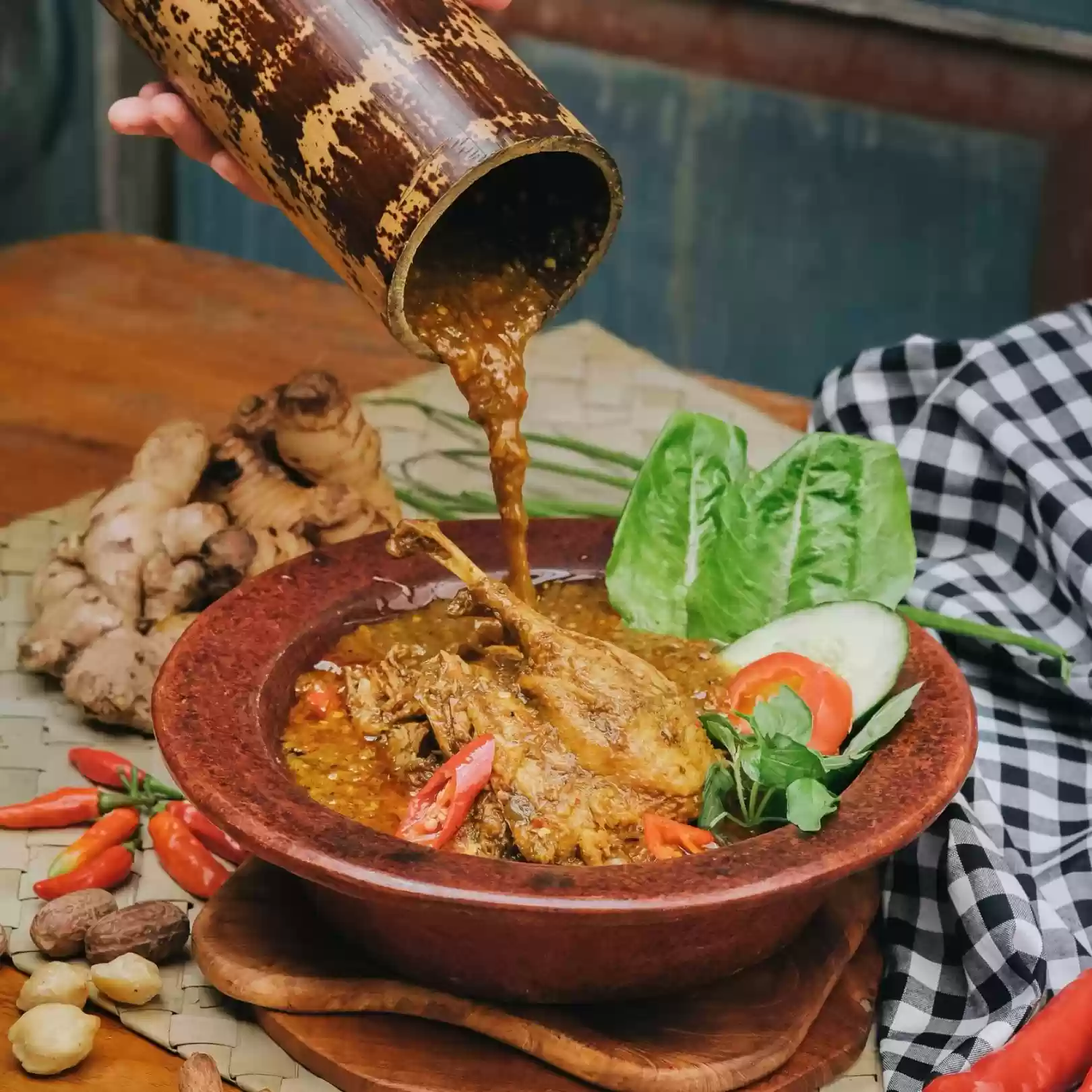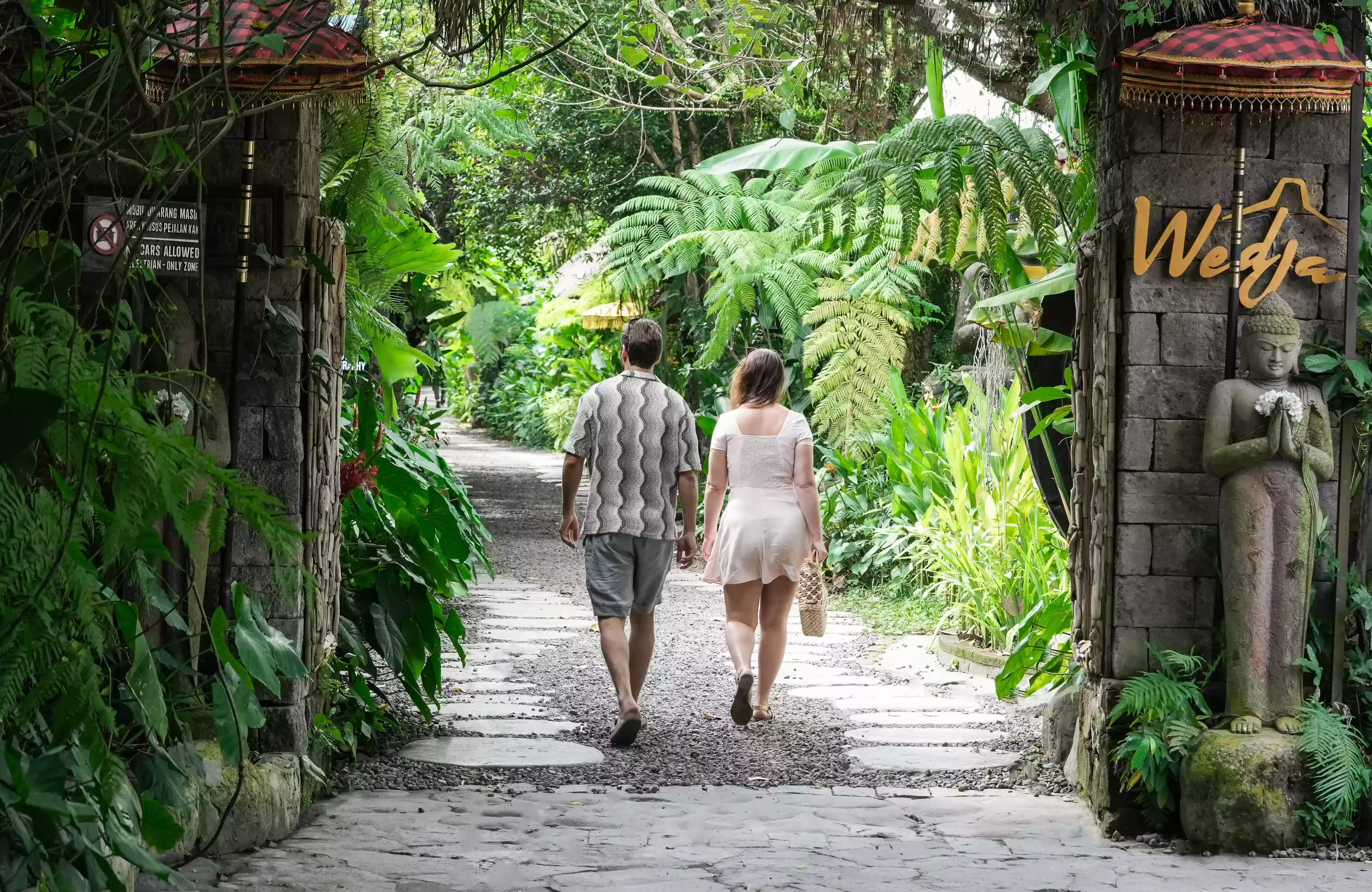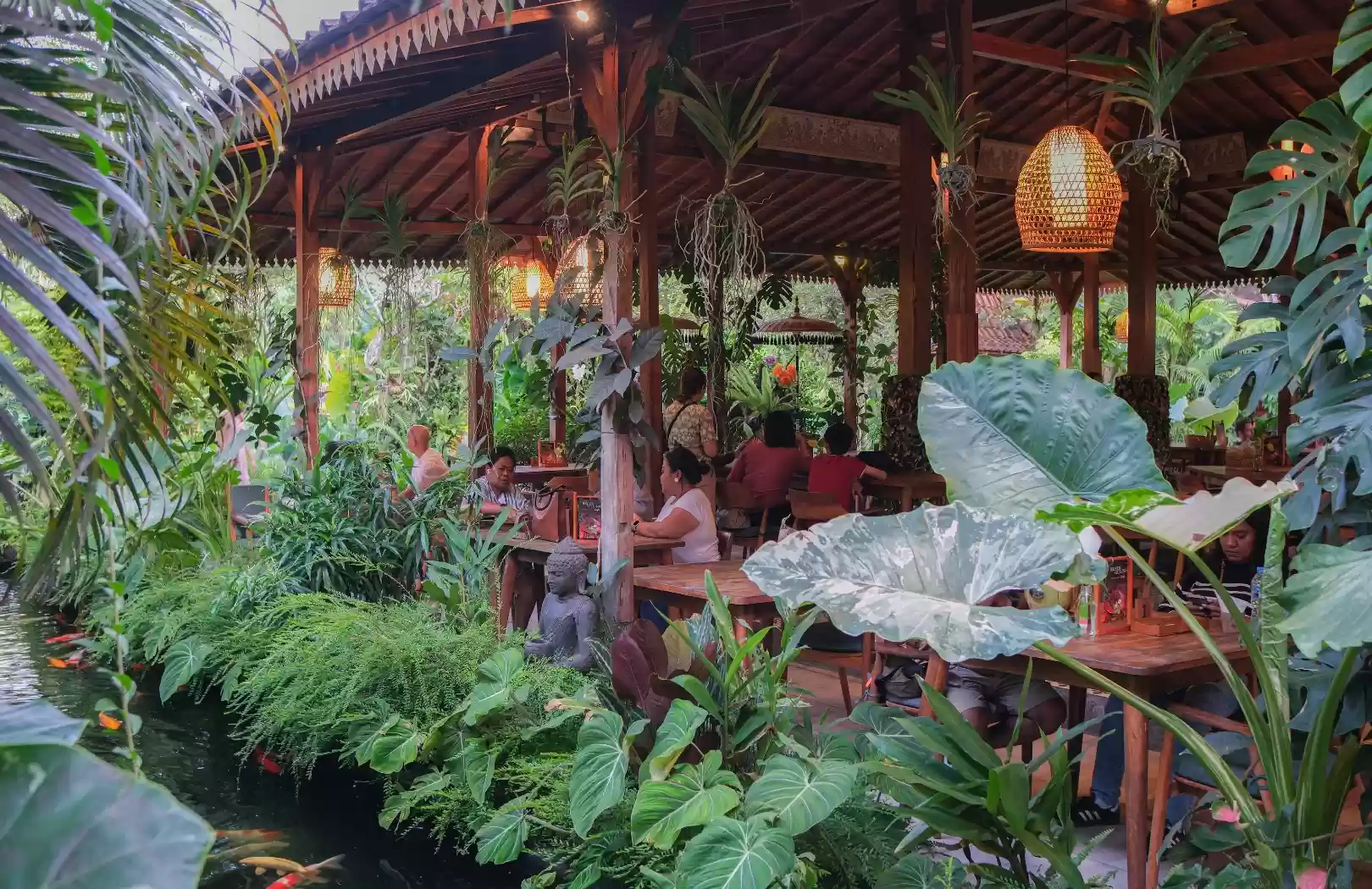Inside Wedja Bali’s Signature Dish Bebek Timbungan and Why Everyone Loves It

Some dishes are just meals — delicious, satisfying, filling. But some dishes tell a story. They carry tradition in their spices, memory in their aroma, and culture in every bite. At Wedja Bali, that dish is the Bebek Timbungan.
It’s not just the most requested item on the menu. It’s the soul of the restaurant.
If you’ve never heard of it before, you’re not alone. Bebek Timbungan is a dish that remains a mystery to many visitors, even those who’ve been to Bali more than once. But once you try it — especially here, in the heart of Ubud surrounded by rice paddies — you’ll understand why this ancient recipe has become a modern-day culinary icon.
A Dish With Deep Roots in Balinese Culture
Let’s start with the origin.
Bebek Timbungan is one of Bali’s oldest ceremonial dishes. Traditionally, it was served only during sacred rituals or religious events — prepared with patience, respect, and an intimate connection to nature. The name comes from the word timbung, meaning “bamboo” in Balinese. That’s because the dish is cooked inside bamboo tubes, sealed with banana leaves, and buried in smoldering embers for hours.
This isn’t just food. This is heritage.
In the past, preparing Bebek Timbungan was a communal affair — families and neighbors would gather in the early morning to clean the duck, grind the spices, stuff the bamboo, and begin the slow-cooking process. It was a ritual in itself, often accompanied by chants or offerings to the gods.
And though modern kitchens have adapted the method, the essence of the dish remains unchanged: a slow-cooked duck, deeply infused with traditional spices, served with reverence and pride.
Wedja Bali’s Take on the Timeless Classic
At Wedja Bali, the Bebek Timbungan isn’t just served — it’s celebrated.
From the moment you sit down and glance at the menu, your eyes will be drawn to it. Described simply, without overstatement. But ask the waiter about it, and they’ll smile knowingly, as if they already know what you’re about to experience.
The duck arrives tender, moist, and melting off the bone. Its meat holds the rich scent of ginger, turmeric, galangal, and torch ginger flower — all blended into a sacred paste known as base genep, the cornerstone of Balinese spice culture.
And the magic?
It’s not grilled. Not fried. Not roasted.
It’s steamed and smoked inside bamboo.
This cooking method gives the duck a subtle smokiness and an earthy undertone that you won’t find in any other dish. The spices don’t sit on top — they infuse into the meat, layer by layer, hour after hour. The result is flavor that feels ancient, honest, and deeply satisfying.
What It Tastes Like
Words like “rich” and “flavorful” don’t quite capture it. Imagine biting into duck that’s been marinated for hours in a sacred spice paste, sealed inside a bamboo log, and slowly transformed by steam and smoke into something buttery, fragrant, and slightly sweet.
It’s not spicy in the way Western palates expect. Instead, the heat comes slowly — a gentle warmth that builds on your tongue. The turmeric lends it a golden glow. The lemongrass and kaffir lime bring a citrusy lift. The garlic, shallots, and coriander root add depth. And there’s a whisper of smokiness that ties it all together.
And just when you think it can’t get better — it’s served with steamed rice, local vegetables, and a side of sambal matah (raw chili-lime relish) that sparks the whole plate to life.
For many guests, this becomes the most memorable meal of their Bali trip.
The Power of Slow Cooking
What sets this dish apart in a world obsessed with fast food is time.
Wedja Bali’s Bebek Timbungan takes hours to prepare. The duck is cleaned, marinated overnight, and carefully placed into sections of bamboo. The bamboo is sealed, then cooked low and slow to allow every flavor to develop.
And it’s not just about technique — it’s about intention.
In Bali, there’s a belief that food made with patience carries spiritual energy. The longer it takes, the more love it holds. You can taste that philosophy in Wedja’s Bebek Timbungan. Every bite feels considered. Every spice feels intentional. It’s a dish that asks you to slow down — to eat with presence, not hurry.
The Setting Makes It Even More Special
It’s one thing to enjoy this dish. It’s another to enjoy it at Wedja Bali, surrounded by lotus ponds, koi fish, swaying rice fields, and open-air pavilions.
There’s something about eating traditional Balinese food in nature that makes it taste even better. The sounds of birds. The rustling leaves. The breeze that carries the scent of clove smoke or frangipani flowers. It’s immersive. Almost spiritual.
You’re not just having dinner — you’re having a moment.
Some guests choose to sit by the lotus bridge, others under the thatched roof near the garden. Wherever you sit, the view of Ubud’s landscape and the aroma of bamboo-cooked duck will stay with you long after the meal is over.
A Dish Worth Traveling For
Many tourists say they found Wedja Bali by chance — a recommendation, a spontaneous detour, or a photo they saw online. But after trying the Bebek Timbungan, they often return before leaving Ubud. Some even bring friends back just to share the experience.
It’s become a kind of pilgrimage dish — the kind people talk about in airport lounges, blog about on travel websites, or remember when they cook at home and realize, “It’s just not the same.”
And that’s the point.
Bebek Timbungan isn’t just a taste. It’s a memory.
For the Curious First-Timer
If you’re someone who’s never tried duck, or who’s cautious about new flavors, don’t worry — this is not an overwhelming or exotic dish. It’s warm, comforting, and perfectly balanced.
Ask the staff about it — they’re more than happy to explain the ingredients, preparation, and history. At Wedja, you’re encouraged to be curious. To ask questions. To learn while you eat.
And for vegetarians or non-duck eaters, there are plenty of other delicious options too — but for the adventurous, this is the one you’ll tell people about when you get home.
When and How to Try It
- Available Daily – but best to order earlier in the evening, especially during busy dinner hours.
- Reservations Recommended – especially if you want to sit near the rice fields or lotus pond.
- Wedja Bali – Jl. Ambarwati No.1, Mas, Ubud – just minutes from Ubud Center.
- Tip: Pair it with a fresh juice or a lemongrass iced tea for a complete sensory experience.
Why Everyone Loves It
- Because it’s authentic without being intimidating.
- Because it’s complex without being confusing.
- Because it tastes like home, even if it’s your first time in Bali.
- Because it’s made slowly, carefully, and with heart.
In a world where food often feels rushed or replicated, Wedja Bali’s Bebek Timbungan stands out as a reminder that good things take time — and that the best meals are the ones that feed your soul, not just your stomach.
Final Thought
You could try many dishes in Ubud. But if there’s one you absolutely shouldn’t miss — the one that locals respect, chefs admire, and travelers crave — it’s this.
So when you visit Wedja Bali, don’t just scan the menu. Look for the story.
Order the Bebek Timbungan.
Take your time.
And let Bali speak to you, one bite at a time.










